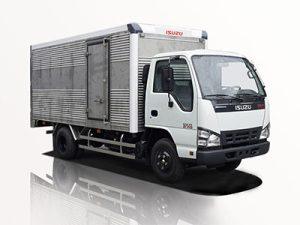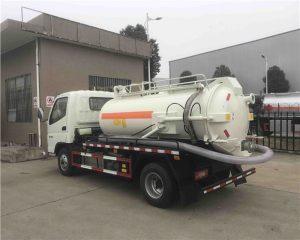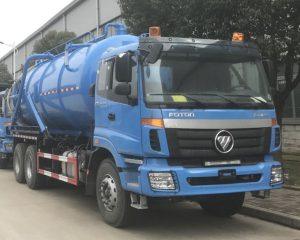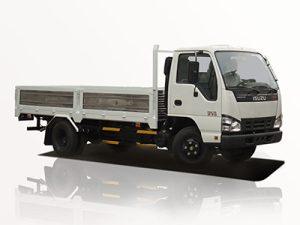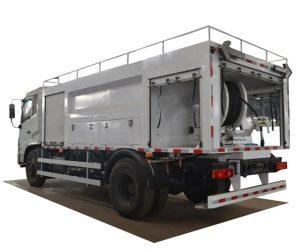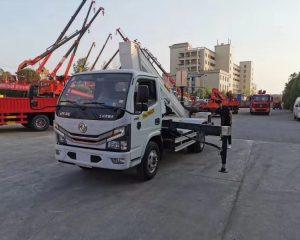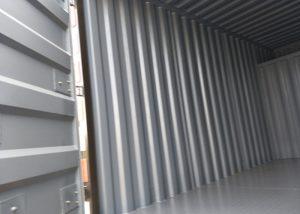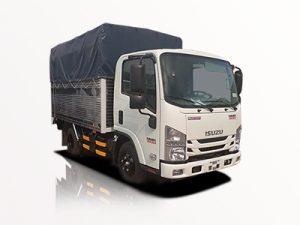Monday to Saturday - 8:00 -17:30
Understanding Roll Off Truck Beds: A Comprehensive Guide
Roll off truck beds are essential for transporting large and heavy materials, particularly in construction and waste management. These specialized truck beds provide an efficient solution for loading and unloading different materials, making them a favorite among contractors and businesses alike. In this article, we will explore the various aspects of roll off truck beds, including their options, benefits, and practical usage. We will also include practical examples and a FAQ section to enhance your understanding.
What are Roll Off Truck Beds?
Roll off truck beds are designed to handle containers that can be easily rolled on and off the truck’s bed. These trucks use a hydraulic system that allows the container to be loaded and unloaded with minimal effort, making them ideal for transporting debris, construction materials, or waste. Their versatility and efficiency make them a valuable asset in various industries.
How Roll Off Truck Beds Work
Roll off truck beds operate by utilizing a hydraulic system that tilts the truck bed. This tilt allows the container to roll off when empty and roll on when it’s being loaded. Here’s a simple breakdown of how they work:
- The truck backs up to the container to be loaded.
- The hydraulic system is activated, tilting the truck bed.
- The container is rolled off or onto the bed with the help of rollers.
- Once loaded, the hydraulic system returns the bed to a flat position for transport.
Types of Roll Off Truck Beds
Understanding the different types of roll off truck beds can help you choose the right one for your needs. Here are some common types:
1. Standard Roll Off Beds
Standard roll off beds are the most commonly used type. They are used for a wide range of materials, including construction debris and general waste.
2. Low-Profile Roll Off Beds
Low-profile roll off beds are designed with a lower height, making them easier to load heavy materials. These are ideal for projects that require a lower loading height.
3. Specialty Roll Off Containers
Some roll off truck beds come equipped with specialty containers designed for specific materials such as recyclables, hazardous waste, and more.
Benefits of Roll Off Truck Beds
Using roll off truck beds offers numerous advantages, including:
1. Improved Efficiency
Roll off truck beds allow for quick loading and unloading, saving time and labor costs on projects.
2. Versatility
They can accommodate a variety of materials, making them suitable for different industries, from construction to residential cleanup.
3. Enhanced Safety
Using a hydraulic system minimizes manual lifting, reducing the risk of injuries associated with heavy lifting.
4. Cost-Effective
Roll off trucks can reduce overall project costs by enhancing productivity and minimizing labor requirements.
How to Choose a Roll Off Truck Bed
Selecting the right roll off truck bed is crucial for maximizing productivity. Here are some important factors to consider:
1. Size and Capacity
Consider the size of the materials you will be transporting. Choose a truck bed that can handle the weight and dimensions of your load.
2. Type of Material
Ensure the truck bed is designed to accommodate the specific type of materials you will be transporting, be it solid waste, debris, or hazardous materials.
3. Hydraulic System Quality
Look for a reliable hydraulic system for easy operation and to prevent breakdowns during crucial times.
Examples of Roll Off Truck Bed Applications
Roll off truck beds serve a variety of applications across numerous industries. Here are some practical examples:
1. Construction Sites
Roll off trucks are frequently used on construction sites to transport materials such as concrete, wood, and steel. They facilitate quick disposal of construction waste.
2. Landscaping Projects
Landscapers use roll off trucks to transport soil, mulch, and other materials needed for their projects, ensuring efficient workflow.
3. Municipal Waste Management
Municipalities often rely on roll off trucks for collecting curbside waste and collecting recyclable materials from public places.
4. Environmental Cleanup
These truck beds are also utilized in environmental cleanup efforts, where hazardous and non-hazardous materials need to be safely transported.
Tips for Operating a Roll Off Truck
Operating a roll off truck properly is critical for safety and efficiency. Here are some tips:
1. Regular Maintenance
Keep the truck and hydraulic system well-maintained to ensure optimal performance. Regular checks can prevent breakdowns.
2. Training and Safety Protocols
Ensure all operators are adequately trained and understand safety protocols to reduce risks during operation.
3. Load Distribution
Evenly distribute loads to maintain truck stability and avoid accidents.
Roll Off Truck Bed Costs
The cost of roll off truck beds can vary significantly based on size, type, and specific features. Here’s an overview of potential costs:
| Type | Average Cost Range |
|---|---|
| Standard Roll Off Bed | $20,000 – $50,000 |
| Low-Profile Roll Off Bed | $25,000 – $60,000 |
| Specialty Containers | $30,000 – $70,000 |
Frequently Asked Questions (FAQ)
1. What is the typical weight limit for roll off trucks?
Most roll off trucks can handle loads ranging from 10,000 to 20,000 pounds, depending on the specific model and configuration.
2. Are roll off containers weather-resistant?
Yes, most roll off containers are constructed with durable materials designed to withstand various weather conditions, making them suitable for outdoor use.
3. How long can I rent a roll off truck?
Rental periods can vary from a few days to several weeks, depending on the rental company. It’s essential to confirm specific terms with the rental service provider.
4. Can I use a roll off truck for hazardous waste?
Yes, but it’s crucial to have the proper permits and containers for hazardous waste transportation. Ensure compliance with local regulations to avoid penalties.
5. What should I do if the load is too heavy?
If the load exceeds capacity, redistribute some of the weight or use a second truck to ensure safe transportation and prevent accidents.
6. How do I properly secure a load on a roll off truck?
Always use straps or chains to secure the load, covering any sharp edges with protective barriers to avoid damage to the container and vehicle.


